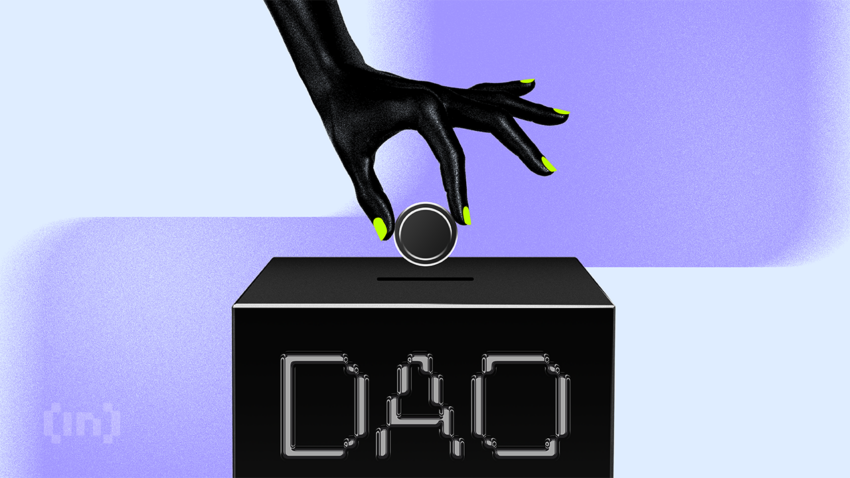The U.S. Commodity Futures Trading Commission (CFTC) scored a default victory against the decentralized autonomous organization (DAO) Ooki DAO, according to a June 9 statement from the regulator.
According to a June 8 ruling, U.S. Judge William H. Orrick U.S. stated that Ooki DAO operated as an illegal trading platform and unlawfully acted as a futures commission merchant (FCM).
Ooki DAO Fined Over $643,000
The court ordered Ooki DAO to pay a civil monetary penalty of $643,542. It permanently banned the DAO from trading and registering. Furthermore, the court ruled that Ooki DAO must shut down its website and remove its content from the internet.
CFTC’s Enforcement Director, Ian McGinley, said Ooki DAO’s founders created the platform “with an evasive purpose, and with the explicit goal of operating an illegal trading platform without legal accountability.”
In September 2022, the CFTC alleged that the decentralized organization illegally offered retail margin and leverage trading services. At the time, the lawsuit drew the ire of the crypto community, who rallied for the platform. However, its attempt to defend itself was futile as it missed the January deadline to respond to the lawsuit.
Court Recognizes DAO as a Person
Judge Orrick further ruled that the DAO, recognized as a “person” under the Commodity Exchange Act, can be liable for law violations. Many have widely described this ruling as a “precedent-setting decision” because it enables the trial of DAOs as individuals.
Ordinarily, DAOs have no central leadership and are governed by rules enforced on a blockchain. This makes it difficult for a specific individual to be tied to it as their members collectively own and manage it.
However, McGinley argued that the judgment serves as a wake-up call for those adopting a DAO structure. He said:
“This decision should serve as a wake-up call to anyone who believes they can circumvent the law by adopting a DAO structure, intending to insulate themselves from law enforcement and ultimately putting the public at risk.”
Community Reacts
The judgment has drawn several legal takes from within the community, with many arguing about how far-reaching the decision was.
Delphi Labs’ general counsel, Gabriel Shapiro, opined that the default judgment has “limited precedential significance” because the CFTC “won without needing to prove its theories.” Shapiro added that “personal liability remains a real risk & is a reason to rethink DAO practices & terminology/narratives.”
Meanwhile, a Professor of Law at the University of Kentucky, Brian L. Frye, faulted Ooki DAO’s lack of response to the lawsuit. Frye said:
“Rule of thumb: When a federal agency sues your business, it’s a good idea to file a response. Interesting to see multiple amicus briefs, but nothing from the defendant.”
Trusted
Disclaimer
In adherence to the Trust Project guidelines, BeInCrypto is committed to unbiased, transparent reporting. This news article aims to provide accurate, timely information. However, readers are advised to verify facts independently and consult with a professional before making any decisions based on this content. Please note that our Terms and Conditions, Privacy Policy, and Disclaimers have been updated.


